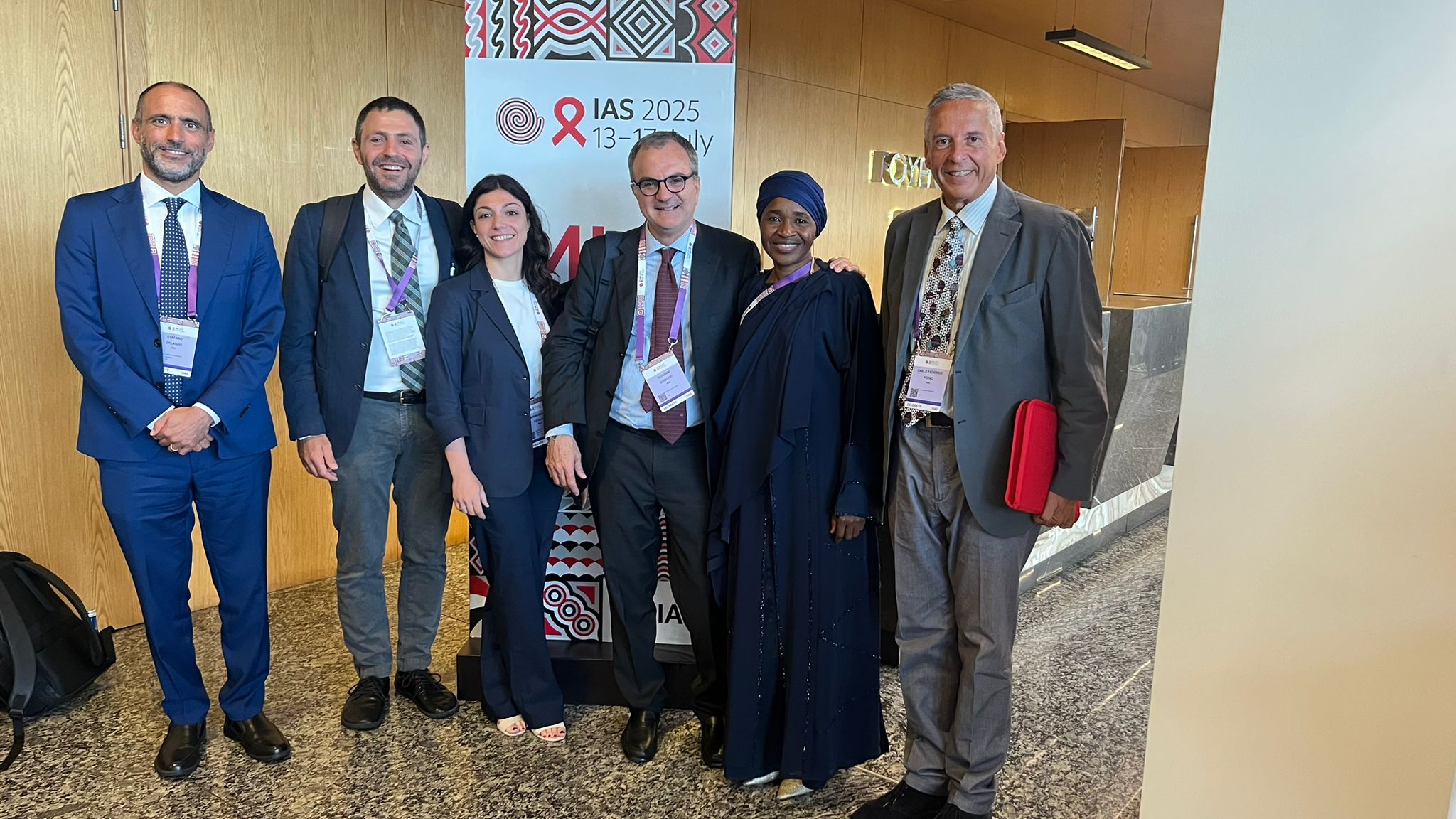IAS 2025 Conference: The DREAM Program Renews the Fight Against HIV in Africa
On July 14, 2025, the DREAM Program of the Community of Sant’Egidio hosted a satellite session at the IAS Conference in Kigali, titled: “Defeating HIV in Africa: A Possible Goal.”
The IAS Conference (International AIDS Society) is the world’s most authoritative gathering dedicated to HIV research and its clinical and policy applications. Held every two years, it sets the global standard for excellence in HIV science, offering an inclusive program that combines research, innovation, and real-world impact.
The session was held in room MH2 in a hybrid format, with the participation of around one hundred delegates from various African countries—from Malawi to Eswatini, Senegal to Mozambique.
At the heart of the discussion was the critical challenge of antiretroviral drug resistance and the need to strengthen the quality of healthcare services. As Prof. Carlo Federico Perno (Bambino Gesù Hospital) emphasized, viral suppression is just the beginning: “Achieving suppression is important. But what truly makes the difference is maintaining it over time, to ensure patients live long and healthy lives.” In contexts where therapeutic options remain limited—as is the case in many African countries—preventing treatment failure is essential to avoid the emergence of resistant mutations that could jeopardize the effectiveness of available therapies. Hence, his call for a paradigm shift: “From the minimum for everyone to the best for each individual,” advocating for personalized treatments and wider use of diagnostic tools, even in resource-limited settings.
Hawa Mamary Sangaré (clinical lead of the DREAM Program in Malawi) then presented DREAM’s experience in the country—a well-established reality with 15 health centers, three molecular biology labs, and over 230,000 HIV+ patients under care. The numbers speak for themselves: over 95% retention in care, vertical transmission below 1%, and dedicated adolescent services with excellent results in treatment adherence and nutritional recovery. It’s a tangible demonstration that quality healthcare is possible, even in the most fragile contexts, if we invest in training, technology, and—most importantly—people.
Prof. Fausto Ciccacci (University of Tor Vergata) brought attention to the growing risk of “isolation” in the new simplified models of care: fewer contacts, less monitoring, less human connection. Simplification can become dangerous if it weakens the trust between patients and the healthcare system.
The session concluded with remarks by Prof. Stefano Orlando (University of Tor Vergata), who placed the discussion in the historical and global context of the fight against HIV—one of the most successful health responses in history, he noted, but now at risk of dangerous slowdown. The data are clear: the epidemic is not over, funding is decreasing, and promising tools like long-acting PrEP (Pre-Exposure Prophylaxis) remain inaccessible to many. What’s needed is a new ethical, political, and scientific alliance—one that sees 2030 not as a symbolic milestone, but as a real, achievable goal.
The session ended with numerous contributions from the audience and a lively discussion that extended beyond the scheduled time. Delegates from Senegal, Malawi, Eswatini, and many other countries continued exchanging ideas and sharing experiences.
